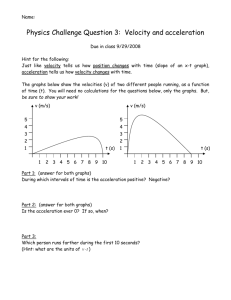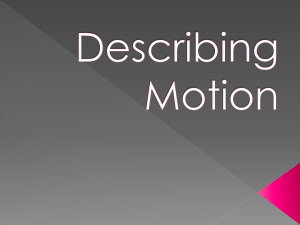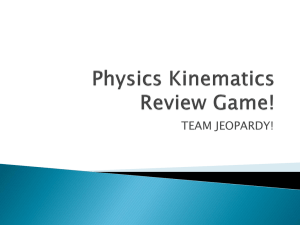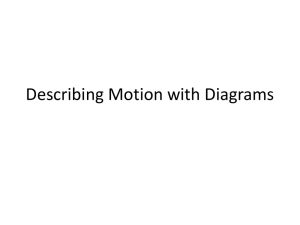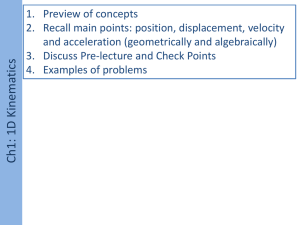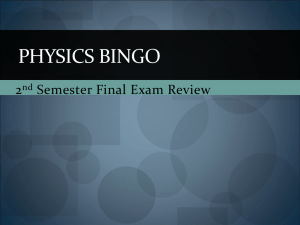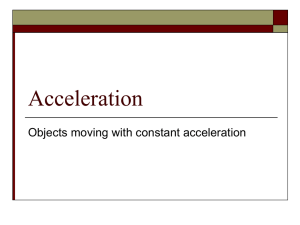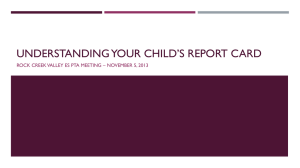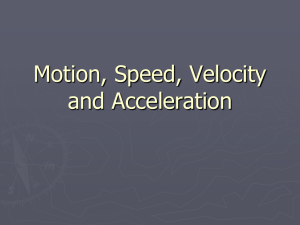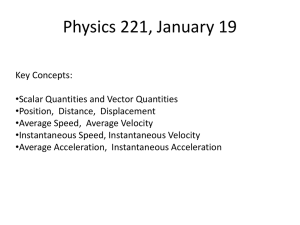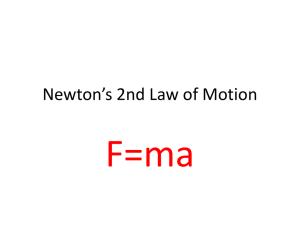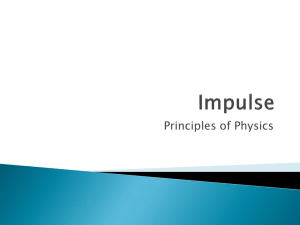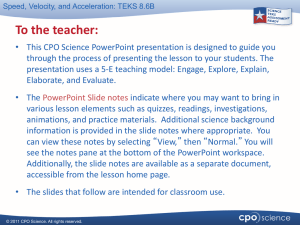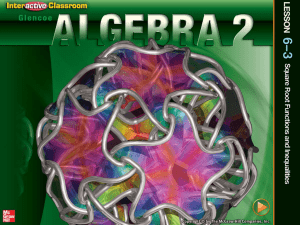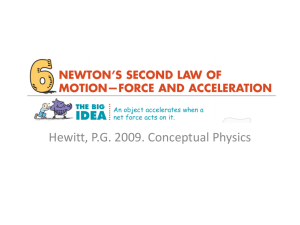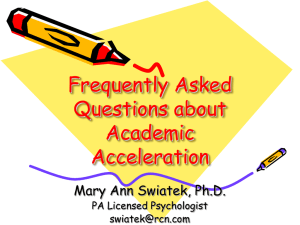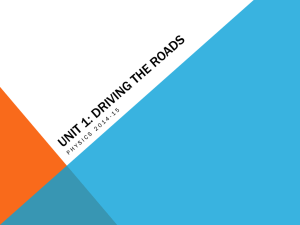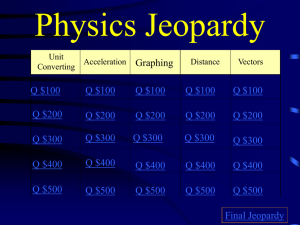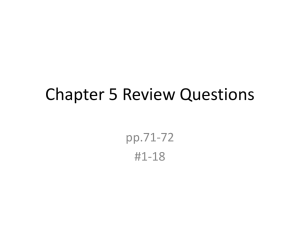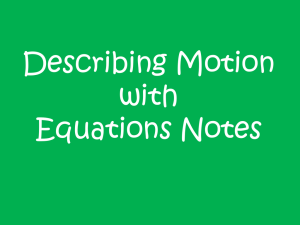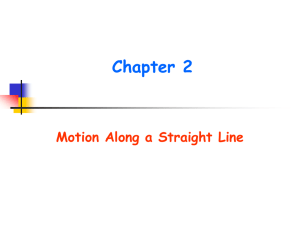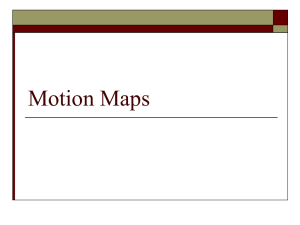Lesson Plan PowerPoint - School of Arts & Sciences
advertisement
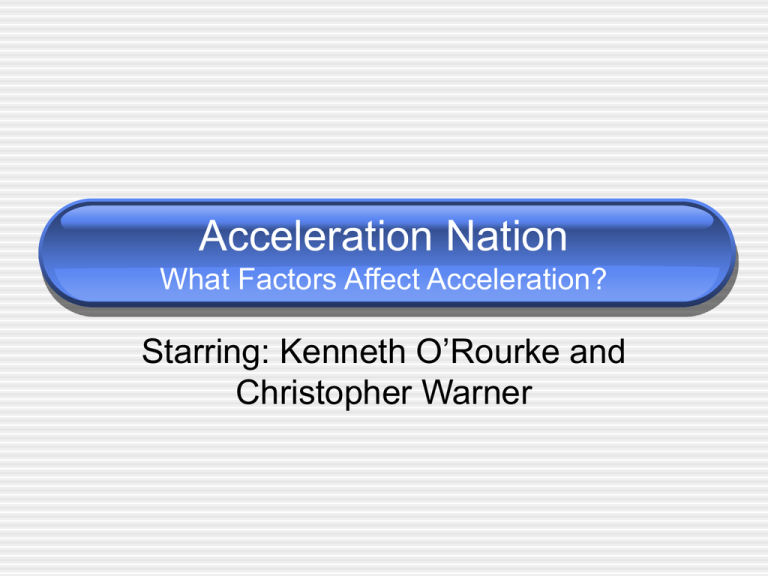
Acceleration Nation What Factors Affect Acceleration? Starring: Kenneth O’Rourke and Christopher Warner Objectives/Goals • Distinguish the difference between velocity and • • • acceleration. Describe motion using words, graphs, and equations. Describe fundamental scientific and technological concepts that could solve practical problems. Identify and use the elements of scientific inquiry to solve problems. Lesson Plan Overview 1. Previous Learning Assessment 2. Physics Content 3. Lab exercise 4. Math Content/ Post Lab 1. Previous Assessment • • • • • • • • Basic algebra and graphing Distance vs. Displacement Distance vs. Time Graphs Displacement vs. Time Graphs Average Speed/Instantaneous Speed Average Velocity/Instantaneous Velocity Pre- assessment Quiz Pre-assessment answers 2. Physics Content A. Student preconceptions and examples B. Definition of acceleration/ Practical examples C. Mathematical description D. Lab Preview A. Student Preconception Questions • Students are asked to describe how they view acceleration. Possible answers: speed, moving fast, etc. • Lead students to working definition of acceleration. B. Definition of Acceleration and Examples • Acceleration - changing velocity, positive or • negative change; changing direction is included in this description Examples Have students move around the classroom Physics Classroom webpage showing car accelerating/decelerating Demo: Marble moving up ramp and down ramp. (Negative acceleration and positive acceleration. Demo: Circular motion showing constant speed, changing velocity, and a positive acceleration C. Mathematical Description • a = (final velocity - initial velocity) time elapsed • Have students manipulate formula to isolate variables. (PowerPoint) • Practice Problems (answers) D. Lab Preview • Demonstrate how equipment works • Define expectations. (Lab Design Structure) Develop a method to measure and test acceleration, determine how variables affect acceleration, take measurements, and show data graphically. GET THEM TO INVEST IN SOME OUTCOME! • Create table of variables with students. • Discuss nature of science Multiple testing Collaboration Peer review to minimize error 3. Lab Exercise • Plan for advanced levels of design vs. basic levels of design. • Follow Lab Report Rubric (Pennfield Middle School Lab Report Rubric) • Ensure appropriate amount of guidance facilitates science inquiry. 4. Math Content/Post Lab • Graphing Show examples of graphing (previous velocity vs. time graphs) Graph sample data from student labs Calculations using the data • Solve for acceleration, final velocities, initial velocities, and time • Relate calculations to problems and making predictions. Where can I find all this great stuff! • http://www.sas.upenn.edu/%7Ekennethp/p hysicspowerpoint.html • There are links to every assignment and PowerPoint linked to on the page • Feel free to use and alter any of our created work to suit your instructional goals. Standards • http://www.pde.state.pa.us/a_and_t/lib/a_a nd_t/Science_Anchor_Introduction.doc • Standards covered in the lesson Assessments • • • • • Pre-assessment Acceleration Work Sheet Lab Report Graphs Physics Class Room
